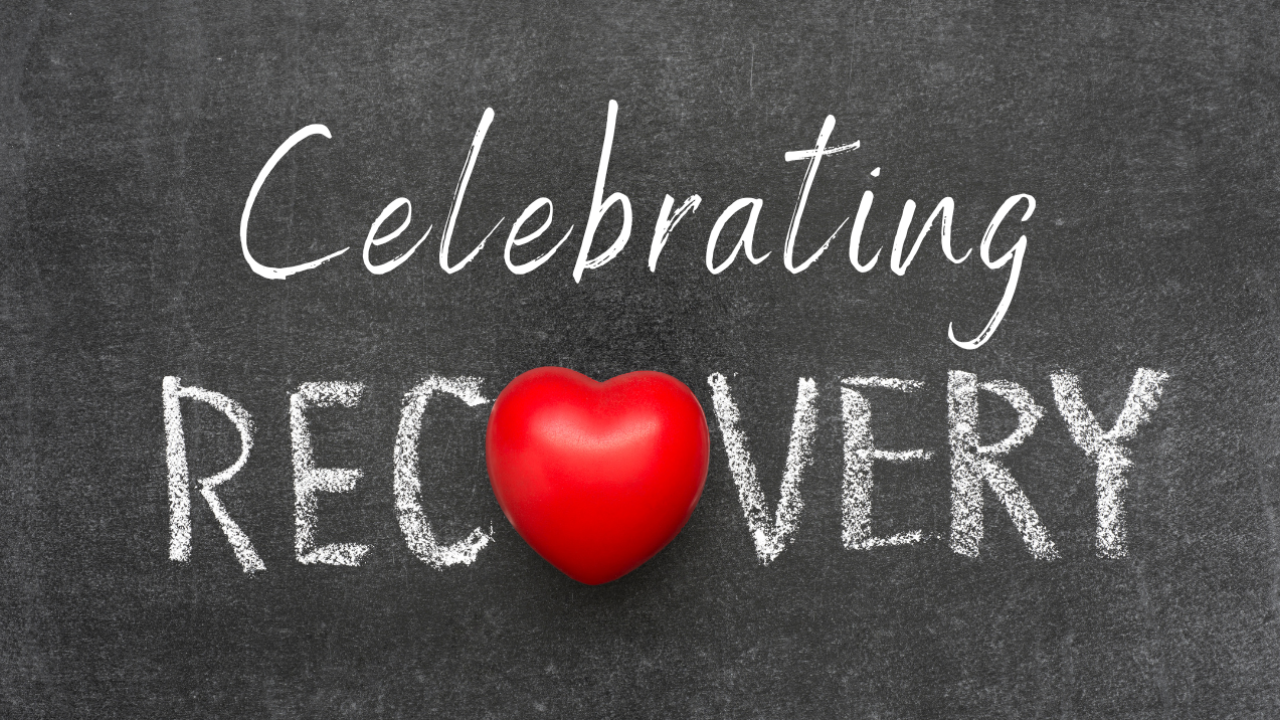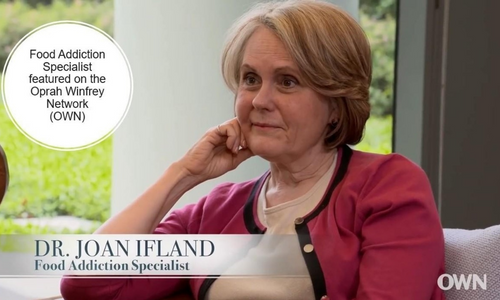Celebrating Dr Joan Ifland's Work in Global Recovery from Processed Food Addiction

Issue No. 7 | Brought to you by the Addiction Reset Community – ARC
Unlocking the secrets of processed food addiction and guiding you to find freedom from food and weight obsession.

We’re kicking off this issue by celebrating the work of Dr Joan Ifland. Joan is a world-renowned expert on processed food addiction and founder of the Addiction Reset Community (ARC).
Joan has dedicated her work and shone a light on the myth that we have to suffer with chronic illness, pain and depression, as we age. Now in her 70th decade, Joan is a testament to the truth that we can indeed enjoy a joyful, content and fulfilled life as we age - IF we can remove highly addictive, toxic, processed foods from our diets!
Not only has Joan turned her own health and life around, but she has dedicated the past 25+ years to sharing her vast knowledge, experience and expertise with the world and has dedicated the rest of her life to her mission of helping people to recover from the scourge of processed food addiction, globally.

Here is Joan’s message - recalling her own journey and sharing her insights with us all:
I think we’ve all had moments of cravings and temptations. They’re terrible, aren’t they? The pull of the cravings fighting the knowledge that we’ll be sick or lose control if we eat processed food. I’ve been there and I never want to be there again.
People tell me that their highest priority is to stop cravings. I agree with that. That’s what I’ve learned to do for myself. That’s what you can learn too. You can put the insanity behind you once you’ve learned what the research tells us about how to teach our brains not to crave.
When I first got into recovery, every week I went to a support meeting. I went without fail. I went regularly for eight years. If I was in town, I went to that meeting. Yes. It took a lot of time and it was inconvenient. And, sometimes, it was just me and one other person. I was terrified of losing my recovery and going back to the raging person I’d been so I went to the meeting faithfully. And then I started my doctoral program. It was too inconvenient to go that support meeting. I decided I didn’t have time to go anymore. I would say that it was a mistake, but I think everything happens for a reason.
Gradually, over the next 11 years, I lost my recovery. With that doctoral program and a textbook behind me, I know what my mistake was. I wasn’t protecting my mirror neurons. This is one of the most important secrets to protection against relapse and I’m giving it to you for free right here. Research shows that we do what the people around us are doing. We are compelled by mirror neurons in our brains to do this.
My mirror neurons explain why I gradually lost my recovery over 11 years. My mirror neurons were only around people who ate processed foods so I started to eat those foods too. Mirror neurons are the most powerful neurons in the brain. So who we hang around with is going to determine whether we eat addictive foods or not.
My relapse became pretty desperate. I don’t know what got me to search Facebook for food addiction but I found a recovery group there. That was not enough to pull me out of the cravings but within a few days, someone started an Abstinence Chat. BINGO! As soon as I joined that Chat, I was OK. I was back to abstinence that day.
From the eight years of steady brain training in the live recovery group, my mirror neurons recognized the group dynamics and got right to work directing me to avoid processed foods. It was an incredible relief. I knew Facebook would be a great place to educate people about food addiction so I founded the Group, ‘Food Addiction Education.’ Seven years later, it has over 20,000 members.
I also built a website for information I’d gathered in my doctoral program and launched the Addiction Reset Community. My goal is to make research-based education about recovery from addiction to processed foods available to everyone who might be suffering. That could be as many as 2 billion people. I’m on my way.
Health professionals are saying that we can’t lose weight in the long-term. They’ve seen every kind of program fail as the person regains the weight. It might take 10 years, but people regain regardless of what ‘weight-loss’ program they used. In my opinion, they’re just using the wrong approach. They’ve got it backwards. Food addiction does not respond to weight-loss approaches. Weight-loss responds to food addiction recovery. We have to start with recovery as an avenue to weight normalization. Does this make sense?
A recent report from the Center for Disease Control (CDC) said that Americans are giving up on weight-loss. That’s a tragedy because the research shows us how to retrain brains not to crave using online communities. We know better. We know to use an addiction recovery approach. We know to structure recovery for a lifetime. We will never give up. I hope they’re watching us succeed. If I can do food addiction recovery online, you can do it too.
I thank literally thousands of researchers around the world for the knowledge of how to recover from processed food addiction. Since I completed my doctoral program in 2004-2007 and wrote the Processed Food Addiction textbook in 2014-2017, I have reviewed about eight thousand research reports. These reports describe what happens when humans and animals eat processed foods repeatedly.
It’s shockingly simple. These foods rewire the brain to crave and stress in response to triggers while impairing decision-making and emotional processing. These findings show that overeating is not our fault and it does help us understand what to do. A rewired brain sounds dreadful until we grasp that we can turn this around. Research shows that we can reteach the brain not to crave and stress, and we can restore the decision-making and emotional processing centers in the brain.
We need to do this in a convenient, accessible online community. We need to know what helps versus what is wasted or even harmful effort. I am seeing this approach work now. People who’ve never had control of their food are gaining control and, they’re using techniques that are proven in research to be effective. This is a whole new ballgame. This means that everything you’ve been told about how to ‘lose weight’ can be re-evaluated as helpful to recovery or useless or even harmful.
This means you can be triumphant no matter how many times the guidance you’ve been given has failed you. You have never failed. The programs you were given failed you. You can take the skills you have and put them to good use in recovery. Everything else is teachable. If you know how to cook, great! If you don’t, that’s something you can learn. If you know how to meditate, fantastic! If you don’t know how that’s something you can learn too. So have hope again, OK?
- Dr Joan Ifland- PhD -

Many people reach out to Joan asking for advice and assistance on how they can begin their recovery journey.
Dear Joan:
I am 59 years old and I’ve been trying to get my eating under control for the past 9 years. I have tried to cut out sugar and some processed food but I always seem to slip up after every few weeks, sometimes binging on processed food for a day or 2 before trying again. The longest I have abstained from junk food is 2 months. It is clear to me that this is an addiction! What is the solution to recovering from processed food addiction?
Joan responds:
I’m so sorry that you are experiencing the lack of control that is brought about from having a severe addiction that was given to us by the Tobacco and food industry. This is not your fault and I commend you for being so resilient and committed to your recovery for as long as you’ve been. This is a severe addiction! Recovery requires effective immersion in a caring support community, where you can build a conformance drive to recover. Ideally, your recovery program must be rooted in the current science of processed food addiction management and must prioritise retraining of the addicted brain, in favour of recovery. Learning the skills to manage cues and triggers that are everywhere in our environment, is critical to recovery.
DISCLAIMER:
Dr Joan Ifland (PhD) is a global expert on the subject of processed food addiction and is not a medical doctor. Information and response shared in this Newsletter are not intended for, and should not be construed as medical advice.

Do you have a question? Reach out to us with your questions about food addiction and recovery at gethelp@foodaddictionreset.com
Are you showing signs of Processed Food Addiction? Take this self-quiz to find out now!

Recent copies of Dr Joan Ifland's Blog:
Issue 01 | Issue 02 | Issue 03 | Issue 04 | Issue 05 | Issue 06

